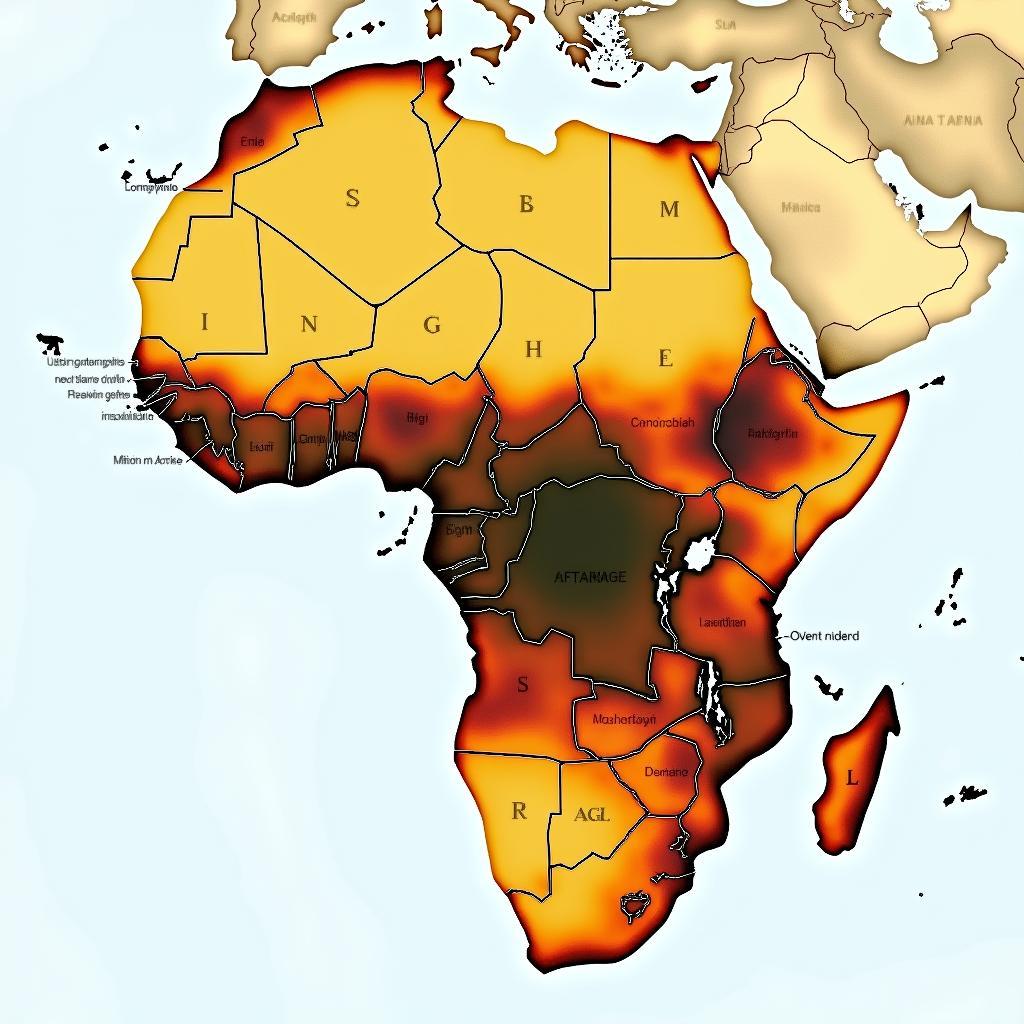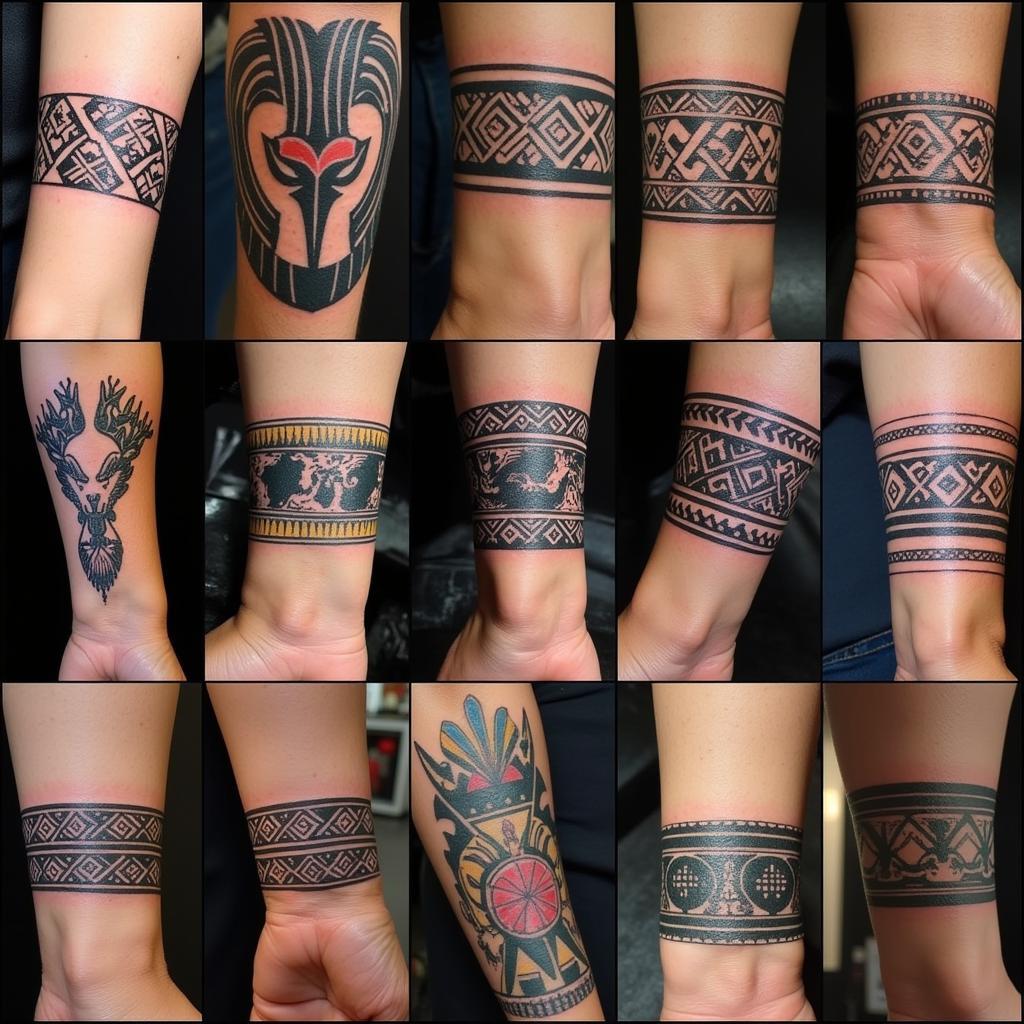Exploring the Rich Tapestry of African Ethnicities
Africa, a continent of vibrant cultures and traditions, is home to an astounding diversity of ethnic groups. Understanding African ethnicities is key to appreciating the continent’s rich history, artistic expressions, musical traditions, and culinary delights. This exploration delves into the complexities and nuances of African ethnicities, revealing the fascinating tapestry that makes up the continent’s human landscape.
A Journey Through African Ethnicities: Unraveling the Diversity
The sheer number of African ethnicities is staggering, estimated to be in the thousands. These groups, each with their own unique customs, languages, and belief systems, contribute to the continent’s cultural mosaic. It’s important to recognize that the concept of “ethnicity” itself can be fluid, influenced by factors such as language, geographic location, shared history, and cultural practices.
Language as a Defining Feature of African Ethnicities
Language often serves as a primary marker of ethnic identity in Africa. With over 2,000 languages spoken across the continent, linguistic diversity reflects the deep-rooted history and cultural evolution of African peoples. From the Afro-Asiatic languages of North Africa to the Niger-Congo languages that dominate Sub-Saharan Africa, language plays a crucial role in defining ethnic boundaries and fostering a sense of belonging. What are the major language families in Africa? The four main language families are Afro-Asiatic, Niger-Congo, Nilo-Saharan, and Khoisan.
The Impact of Geography on Ethnic Group Formation
Geographical factors have played a significant role in shaping the distribution and development of African ethnicities. Mountains, rivers, and deserts have often acted as natural barriers, leading to the isolation and subsequent diversification of ethnic groups. For example, the Sahara Desert has historically separated North African populations from those in Sub-Saharan Africa, resulting in distinct cultural and linguistic differences. Where did the various ethnic groups originate? Many ethnic groups have origins tied to specific geographic regions, evolving over centuries within these areas.  The Influence of Geography on African Ethnicities
The Influence of Geography on African Ethnicities
Delving Deeper into Cultural Practices and Traditions
Beyond language and geography, cultural practices and traditions are integral to understanding African ethnicities. These practices, passed down through generations, encompass a wide range of aspects, including music, art, religion, and social customs.
Music and Dance: Expressions of Cultural Identity
Music and dance play a vital role in the cultural life of many African ethnic groups. From the rhythmic drumming of West Africa to the intricate polyphonic singing of Southern Africa, music serves as a powerful medium for storytelling, celebrating life events, and expressing cultural identity. What instruments are commonly used in African music? A variety of instruments are used, including drums, xylophones, mbiras (thumb pianos), and kora (stringed instruments).
Art and Storytelling: Preserving Cultural Heritage
Artistic expression takes many forms in African cultures, from intricate wood carvings and vibrant textiles to elaborate body painting and beadwork. These art forms often carry deep cultural significance, reflecting the beliefs, values, and history of specific ethnic groups. Storytelling, another important aspect of African cultural heritage, serves as a means of transmitting knowledge, moral values, and historical narratives from one generation to the next. Why is storytelling important in African cultures? Storytelling is a vital way to pass down traditions, history, and cultural values within communities.
Dr. Adebayo Adisa, a renowned anthropologist specializing in African cultures, notes, “African art is not merely decorative; it is imbued with meaning, reflecting the spiritual beliefs, social structures, and historical narratives of the people who create it.”
Chimamanda Ngozi Adichie, a prominent Nigerian writer, emphasizes the importance of diverse narratives, saying, “Stories matter. Many stories matter. Stories have been used to dispossess and to malign, but stories can also be used to empower and to humanize.”
Conclusion: Embracing the Richness of African Ethnicities
African ethnicities, in their vast diversity, represent a vibrant tapestry of cultures, languages, and traditions. Understanding these diverse groups is crucial to appreciating the richness and complexity of the African continent. Further exploration of individual ethnic groups, their histories, and their contributions to the world’s cultural heritage is encouraged. Exploring African ethnicities offers a fascinating journey into the heart of a continent brimming with cultural richness.
Frequently Asked Questions
-
How many ethnic groups are there in Africa? While an exact number is difficult to determine due to the fluid nature of ethnicity, there are thousands of distinct ethnic groups across the continent.
-
What is the largest ethnic group in Africa? The largest ethnic group in Africa is often considered to be the Yoruba people, primarily located in Nigeria and parts of Benin and Togo.
-
How does ethnicity influence daily life in Africa? Ethnicity often influences aspects of daily life such as language, food, clothing, music, and social customs.
-
What are some of the challenges faced by African ethnic groups? Some challenges faced by African ethnic groups include maintaining cultural traditions in a globalized world, addressing historical injustices, and promoting peaceful coexistence among diverse groups.
-
What are some resources for learning more about African ethnicities? Reputable academic institutions, museums specializing in African art and culture, and online resources provide valuable information on African ethnicities.
-
What are the main religions practiced by African ethnic groups? While Christianity and Islam are widely practiced, many African ethnic groups also maintain traditional religious beliefs and practices.
-
How can I respectfully engage with different African cultures? Educating oneself about different cultures, showing respect for local customs, and engaging in respectful dialogue are essential for interacting with diverse African cultures.
If you need further assistance, please contact us: Phone: +255768904061, Email: [email protected] or visit us at Mbarali DC Mawindi, Kangaga, Tanzania. We have a 24/7 customer support team.




